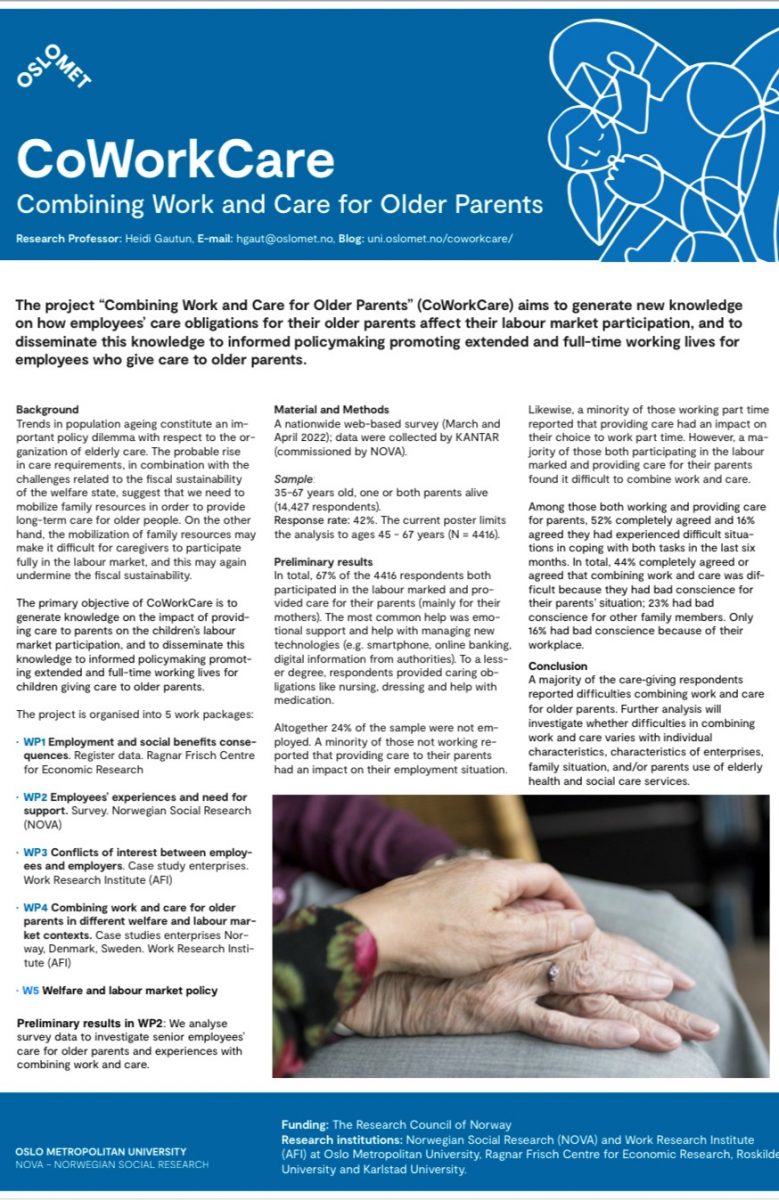Article published in Nordic Journal of Working Life Studies
Gautun, H. & Bratt, H. (2023). Help and Care to Older Parents in the Digital Society. Nordic Journal of Working Life Studies. https://doi.org/10.18291/njwls.13745
This study examines the extent and predictors of employees’ help and care to their old parents and aims to contribute to policy development enabling employees to combine full-time work and caregiving to parents.
Analyzing responses from 3332 Norwegian employees aged between 45 and 67 years with at least one living parent, we identified frequencies of different help and care types and tested competing predictors.
Assistance with digital technology was frequent, and various types of practical support were common, but personal care provision was rare. Parents’ health and parents living alone were substantial predictors. Public home care services seemed insufficient and were associated with employees providing more help and care.
The findings emphasize the family as a comprehensive care provider when the welfare state falls short. The study concludes that adult children play a critical role in helping older people cope with limited public services and challenges posed by the digital society.
